Wooden pergola with roof attached to house – Wooden pergolas with roofs attached to houses offer a captivating blend of style and functionality, transforming outdoor spaces into inviting havens. Whether you seek to enhance your home’s aesthetic appeal or extend your living area outdoors, a wooden pergola with a roof provides a versatile solution.
From selecting the perfect design to ensuring proper installation and maintenance, this comprehensive guide delves into the world of wooden pergolas with roofs, empowering you to create an outdoor oasis that seamlessly complements your home.
Design Considerations
The architectural style of your home should guide the design of your pergola. For traditional homes, consider a pergola with classic lines and a pitched roof. For modern homes, opt for a pergola with clean lines and a flat roof. You can also add decorative elements to your pergola, such as latticework or columns, to match the style of your home.
For an aesthetically pleasing and functional outdoor space, consider a wooden pergola with a roof attached to your house. These structures provide ample shade and protection from the elements, creating a comfortable and inviting atmosphere. If you’re looking to add a touch of fun and relaxation, you can incorporate a wooden pergola with swing into your design.
This combination seamlessly blends style and functionality, allowing you to enjoy both the shade and the gentle swaying motion of a swing.
Wood Species
When choosing a wood species for your pergola, consider its durability, weather resistance, and aesthetic appeal. Cedar and redwood are both durable and weather-resistant, making them good choices for pergolas. They also have a beautiful natural color that will complement any home style.
Structural Features
Pergolas attached to houses offer a unique blend of functionality and aesthetics, providing shade and outdoor living space while enhancing the architectural appeal of the home. Understanding the structural features of these pergolas is crucial to ensure durability, safety, and long-term performance.
Roof Structures
The roof of a pergola attached to a house plays a significant role in its overall design and functionality. There are several types of roof structures commonly used:
– Flat Roofs: Flat roofs are characterized by a level surface, providing a modern and minimalist look. They are typically made of materials like metal or composite decking and require proper drainage systems to prevent water accumulation.
– Pitched Roofs: Pitched roofs have a sloped surface that allows for water runoff and drainage. They are commonly constructed using shingles, metal roofing, or polycarbonate panels and provide additional headroom and architectural interest.
– Vaulted Roofs: Vaulted roofs feature a curved or arched shape, creating a spacious and dramatic effect. They are often made of polycarbonate panels or metal and provide excellent natural light transmission.
Roofing Materials
The choice of roofing material for a pergola attached to a house depends on factors such as durability, weather resistance, and aesthetic preferences. Some commonly used materials include:
– Shingles: Asphalt or composite shingles are popular choices due to their affordability, ease of installation, and wide range of colors and styles.
– Metal: Metal roofing, such as aluminum or steel, offers durability, longevity, and resistance to fire and pests. It is available in various finishes and can complement both modern and traditional architectural styles.
– Polycarbonate: Polycarbonate panels are lightweight, shatter-resistant, and provide excellent light transmission. They are commonly used for vaulted or curved roofs, allowing for natural light to penetrate the pergola space.
Drainage Systems
Proper drainage is essential for pergola roofs to prevent water damage and ensure longevity. Gutters and downspouts are typically installed to channel rainwater away from the structure. Gutters can be made of materials like aluminum or vinyl, while downspouts are typically made of PVC or metal. Ensuring proper drainage helps protect the pergola from moisture damage, rot, and mold.
Functional Aspects: Wooden Pergola With Roof Attached To House
Pergolas with roofs attached to houses extend living spaces outdoors, creating a seamless transition between indoor and outdoor areas. These structures provide shade, rain protection, and privacy, enhancing the functionality and enjoyment of outdoor spaces.
Incorporating outdoor furniture, lighting, and plants into the pergola design transforms it into a comfortable and inviting space. Outdoor furniture, such as sofas, chairs, and tables, provides a place to relax, dine, or entertain guests. Lighting, including string lights, lanterns, or recessed lighting, creates a warm and inviting ambiance in the evenings.
Shade and Rain Protection
A pergola roof provides essential shade from the sun’s harsh rays, making it possible to enjoy outdoor activities during hot summer months. The roof also protects from rain, allowing homeowners to use their outdoor space even in inclement weather.
Privacy and Ambiance
Pergolas with roofs can provide privacy from neighboring homes or create a secluded retreat within the backyard. The roof and surrounding latticework can be used to train climbing plants, creating a lush and private oasis.
Installation and Maintenance
Installing a wooden pergola with a roof attached to a house requires careful planning and execution. By following the proper steps and taking the necessary precautions, you can ensure a successful and long-lasting installation.
Location and Site Preparation
Choosing the right location for your pergola is crucial. Consider factors such as sunlight exposure, proximity to the house, and the overall aesthetic appeal. Once the location is determined, prepare the site by clearing any vegetation or debris and leveling the ground.
Assembly and Installation, Wooden pergola with roof attached to house
- Assemble the pergola according to the manufacturer’s instructions. This typically involves attaching the legs to the base plates and securing the beams and rafters.
- Position the pergola at the chosen location and secure it to the ground using concrete anchors or other suitable fasteners.
- Attach the roof panels to the rafters and seal any joints to prevent water leakage.
- Connect the pergola to the house using lag bolts or other appropriate hardware.
Maintenance
Regular maintenance is essential to ensure the longevity of your pergola. This includes:
- Cleaning the pergola regularly to remove dirt, debris, and mildew.
- Sealing the wood every few years to protect it from moisture and UV damage.
- Inspecting the pergola annually for any damage, such as rot, cracks, or loose connections.
Final Thoughts
Incorporating a wooden pergola with a roof into your home’s design not only enhances its visual appeal but also creates a functional and inviting outdoor space. Whether you seek shade, shelter from the elements, or simply a beautiful addition to your property, a wooden pergola with a roof is a timeless investment that will elevate your home’s aesthetics and provide years of enjoyment.
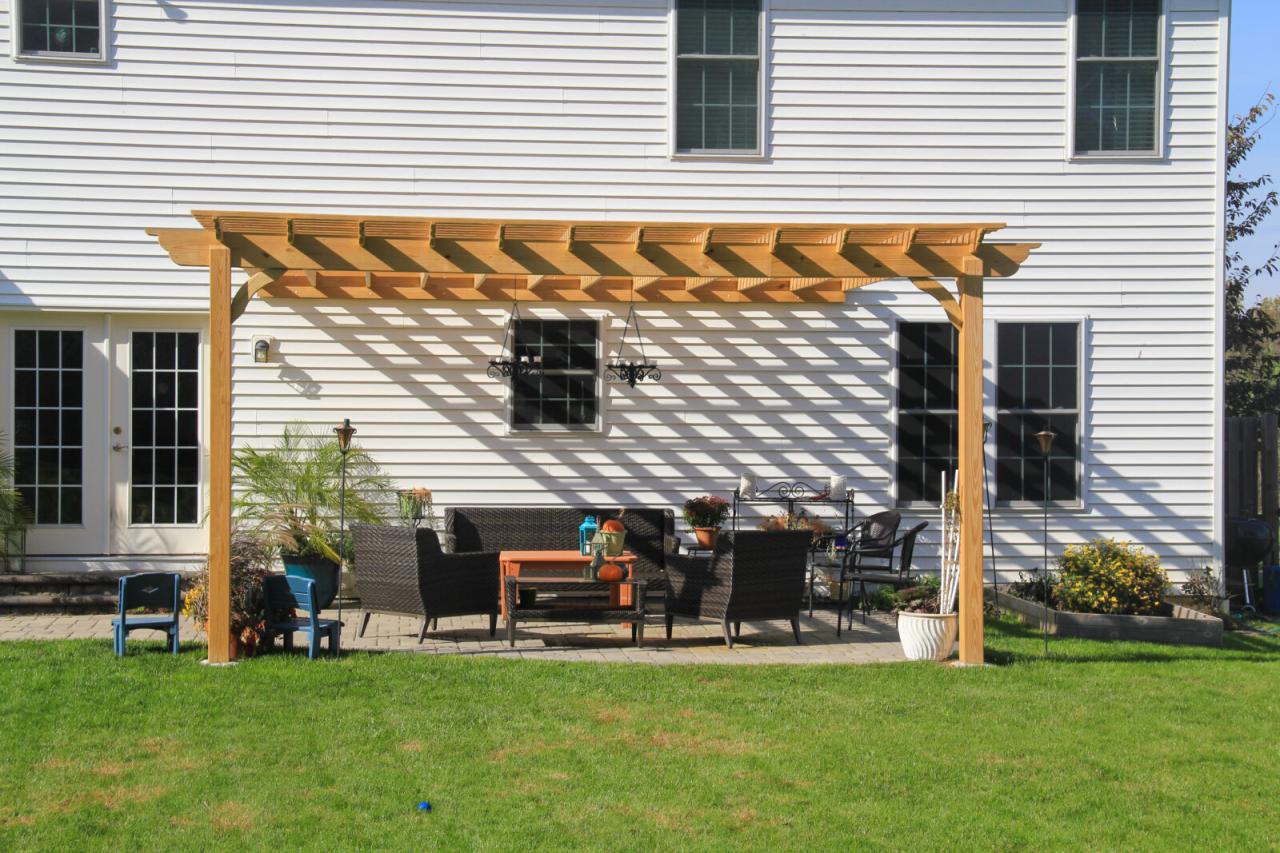
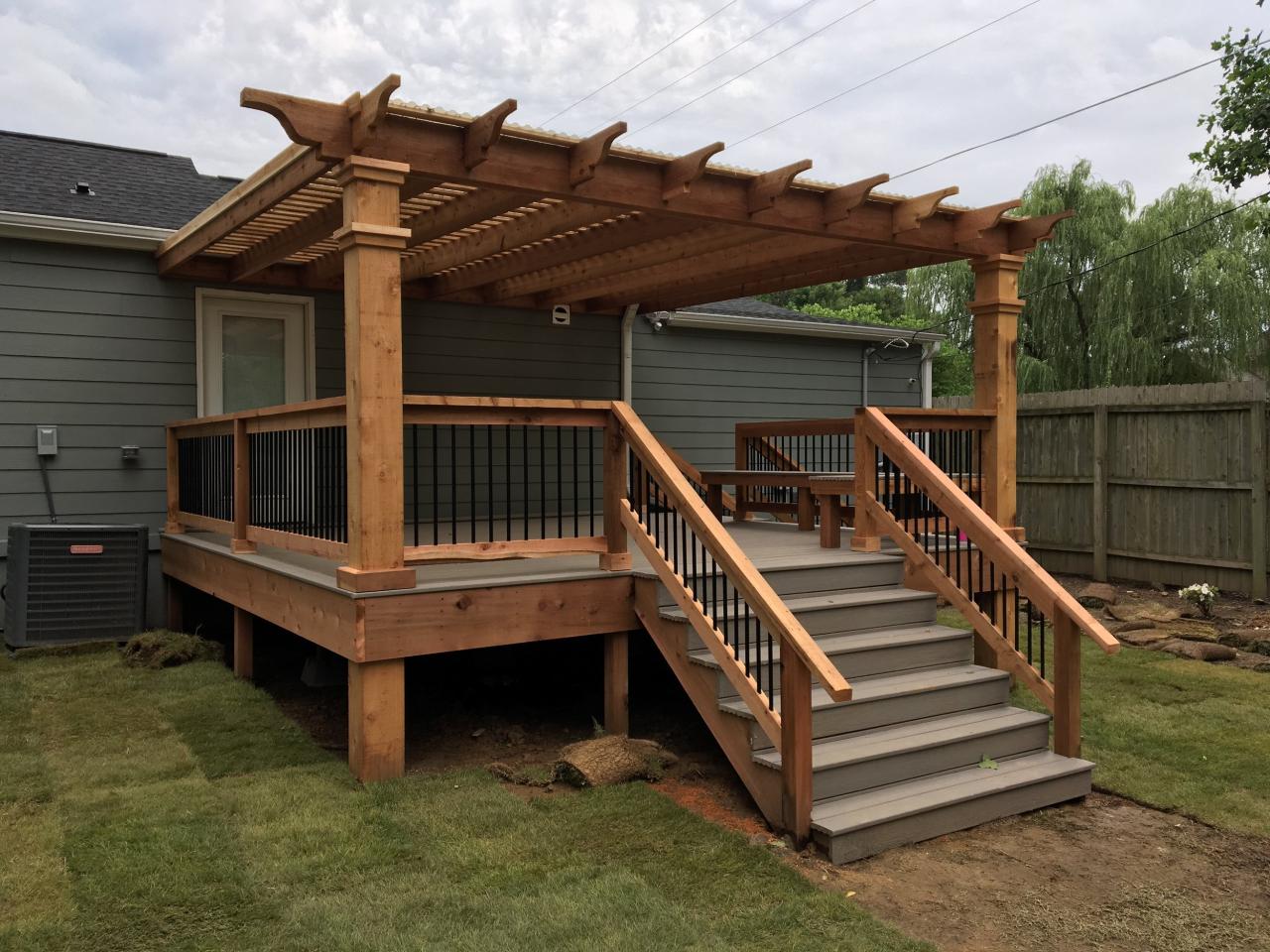
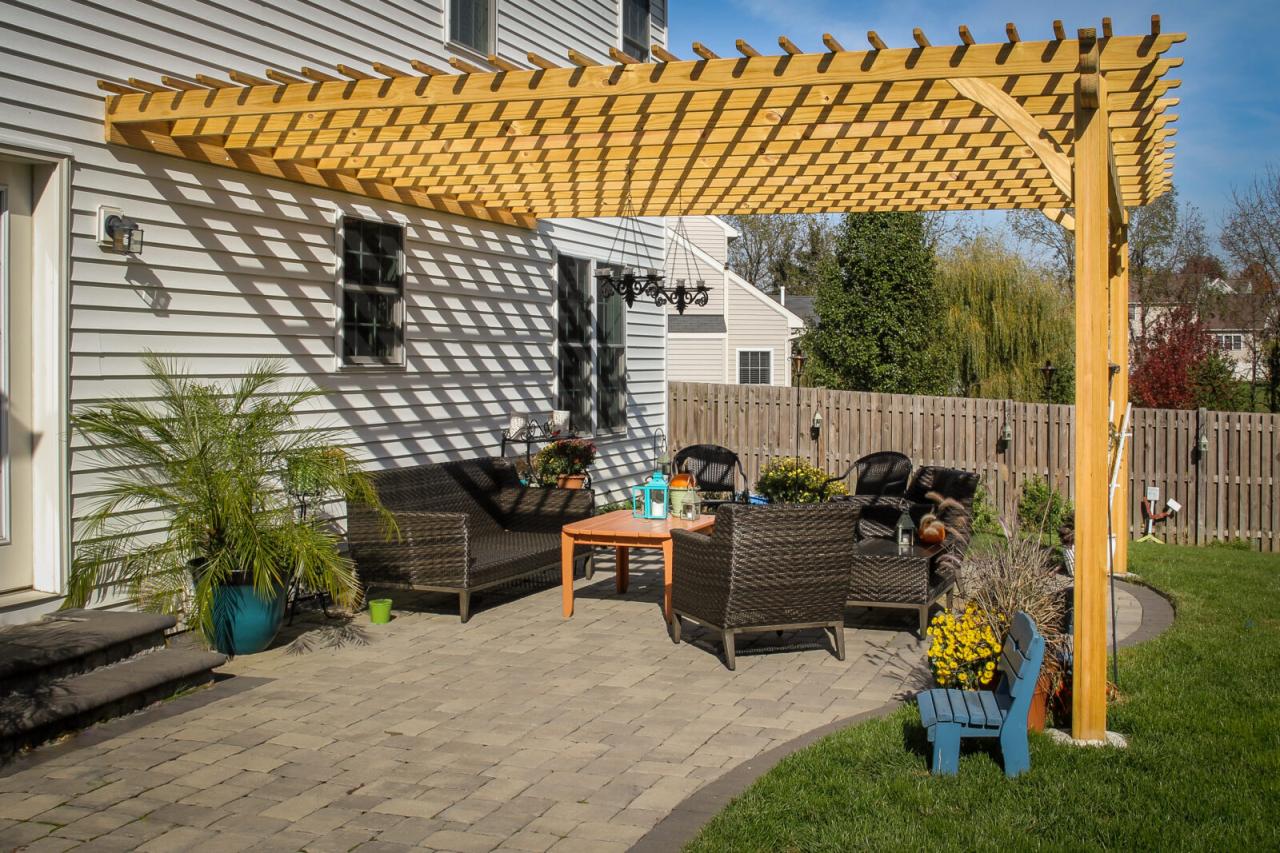
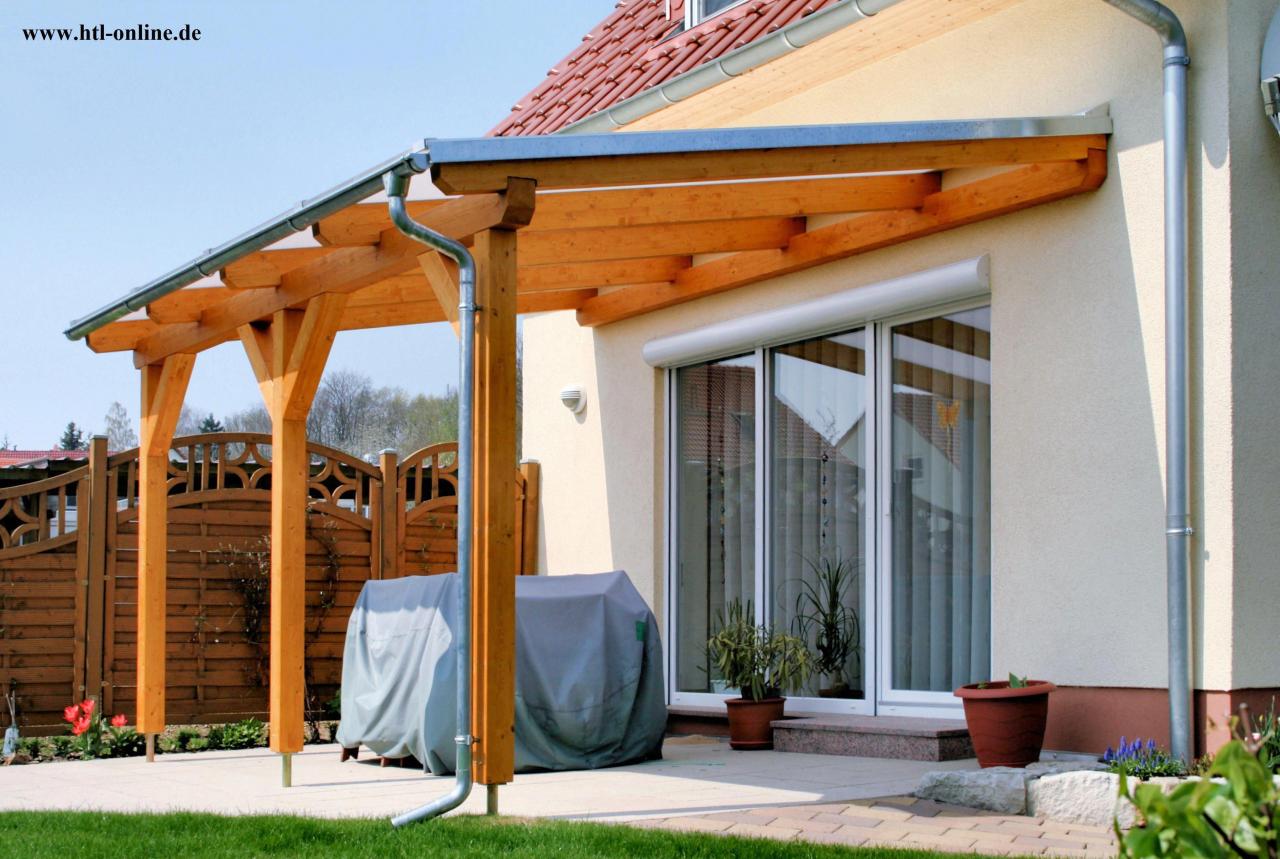
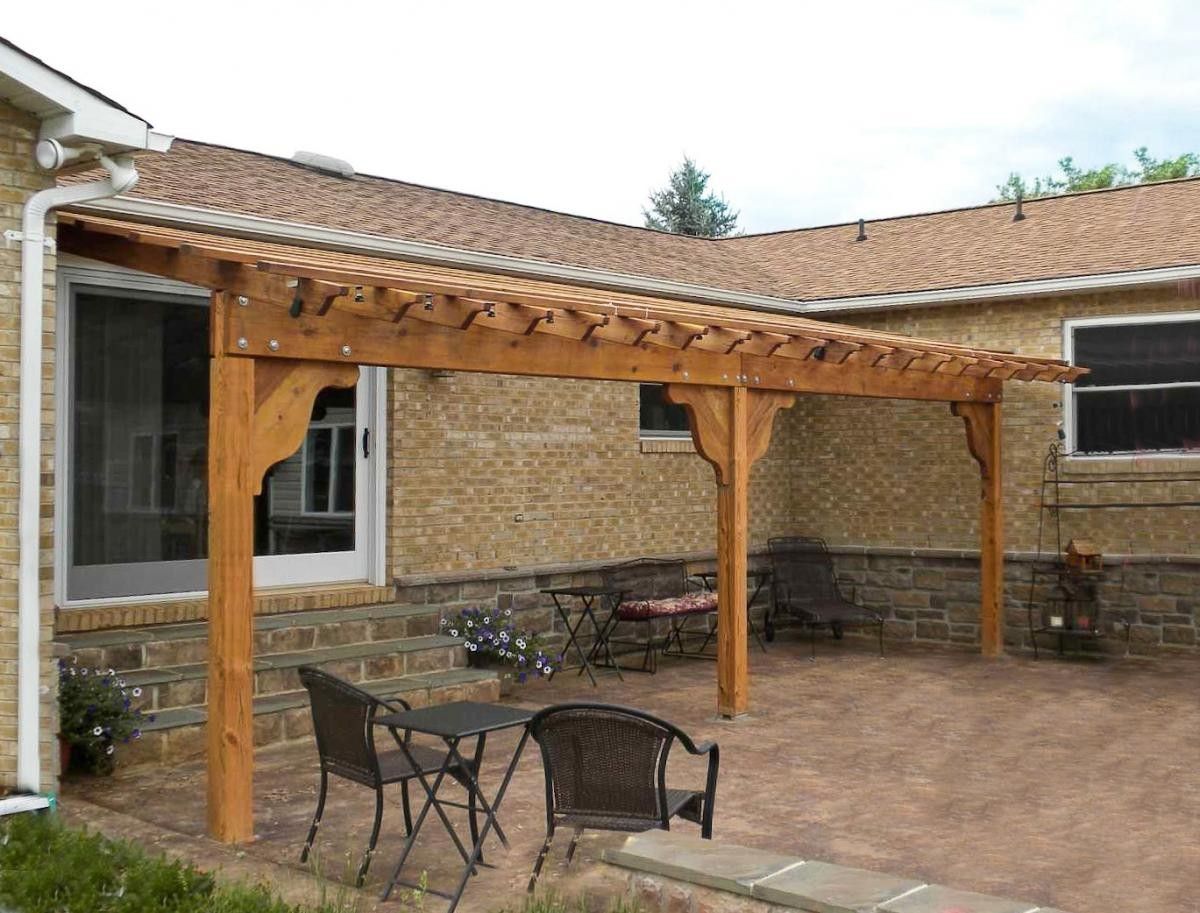
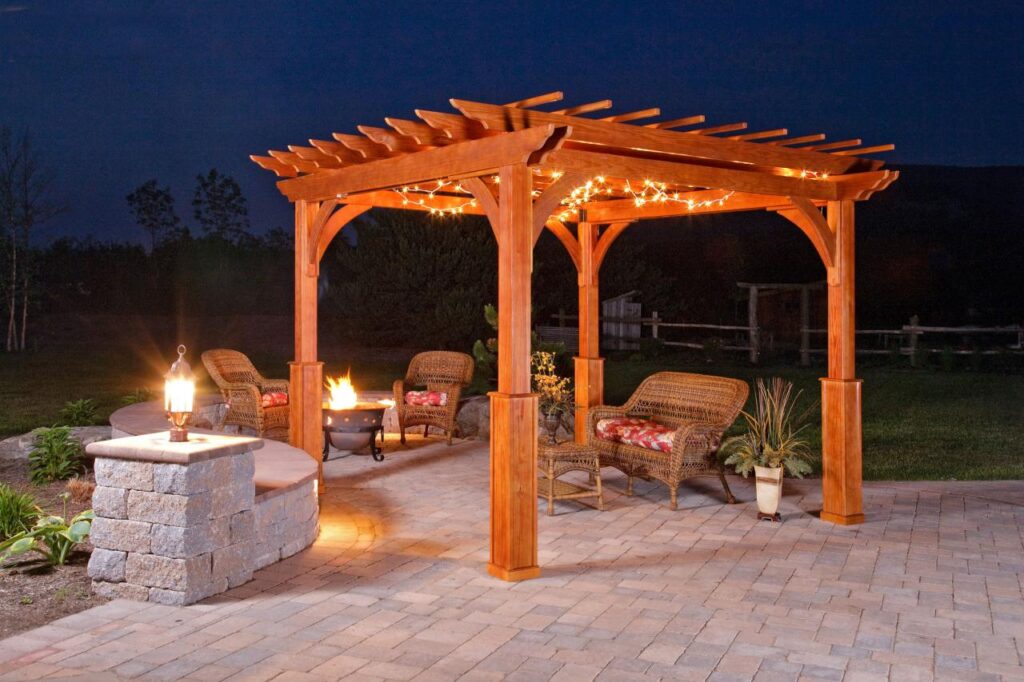
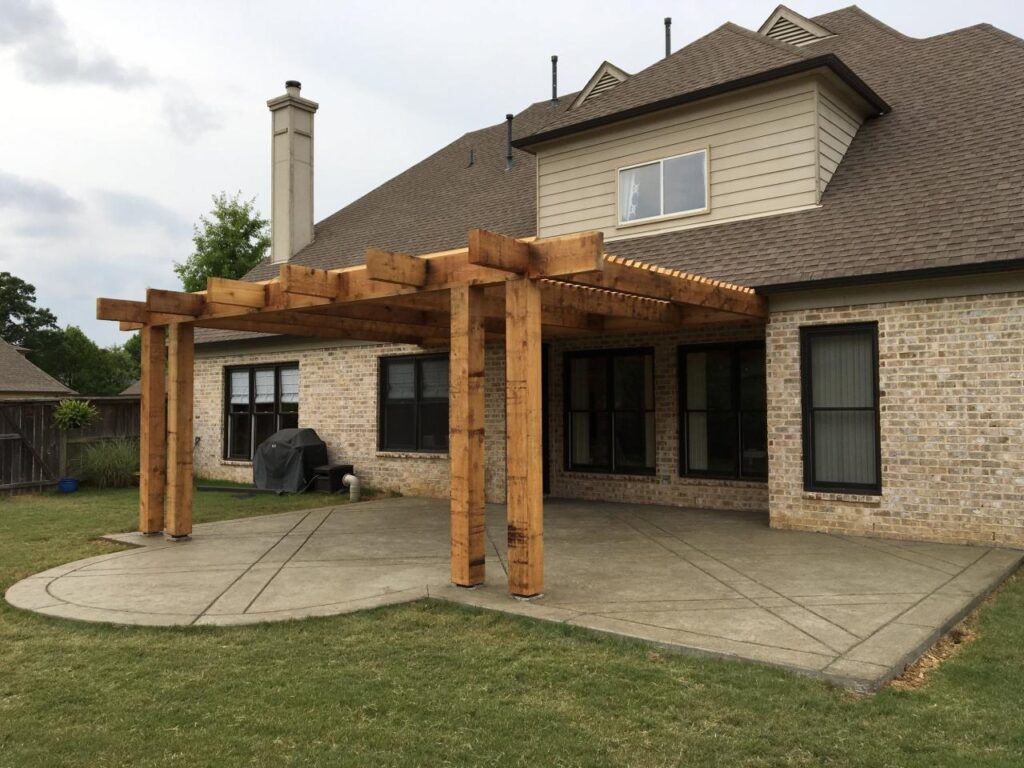
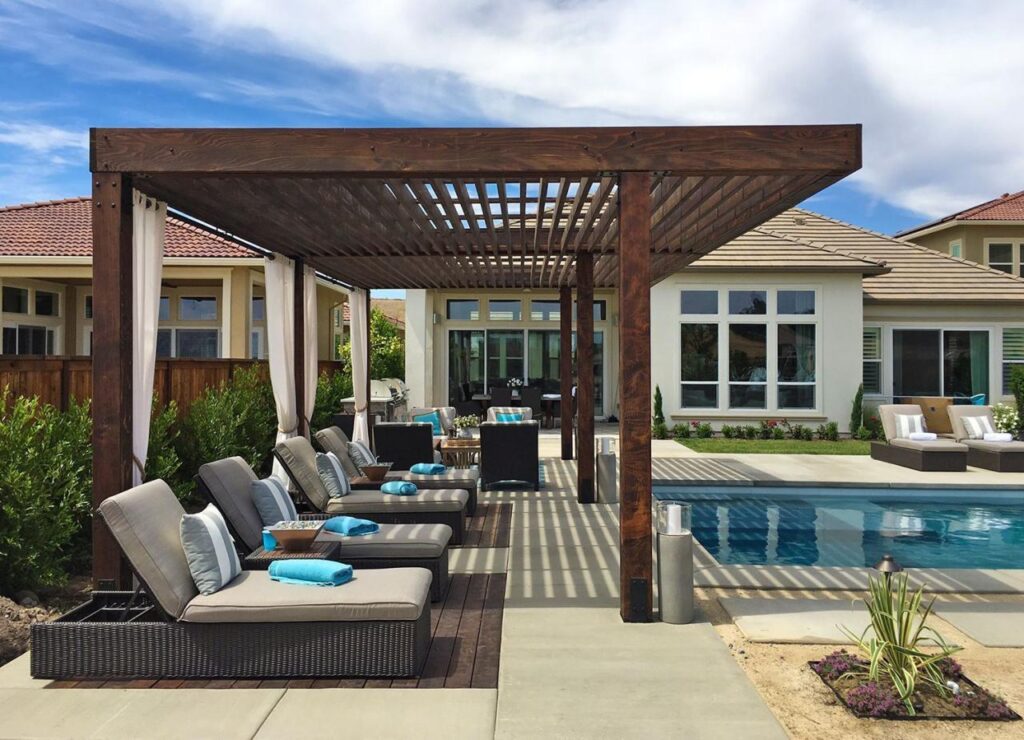

2 thoughts on “Wooden Pergola with Roof: A Stylish Extension to Your Home”